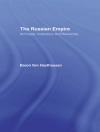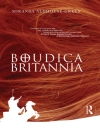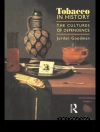This book
aims to intervene in current critical contexts for the study of nineteenth-century literature within the academy and beyond. Topics discussed include science and technology, poetry and philosophy, the Gothic, anatomical exhibitions, the global spread of liberalism, Anglo-American publishing, Punjabi popular culture and the neo-Victorian in literature, film and performance. By bringing together a broad range of intellectually challenging perspectives, the book offers an engaging critical overview of the field of nineteenth-century literary studies that will appeal both to scholars working within the field and students and teachers encountering this fascinating area of study for the first time.
Tabla de materias
Introduction – Andrew Smith and Anna Barton
Part I: Critical reflections
1 On measuring the nineteenth century – John Schad
2 Literature and science – David Amigoni
3 Locke in pentameters: Victorian poetry after (or before) posthumousness – Anna Barton
4 Reading the Gothic and Gothic readers – Andrew Smith
Part II: Rethinking national contexts and exchanges
5 The global circulation of Victorian actants and ideas: liberalism and liberalisation in the niche of nature, culture, and technology – Regenia Gagnier
6 Literary folk: writing popular culture in colonial Punjab, 1885-1905 – Churnjeet Mahn
7 ‘Across the waters of this disputed ocean’: the material production of American literature in nineteenth-century Britain – Katie Mc Gettigan
8 Gruesome models: European displays of natural history and anatomy and nineteenth-century literature – Laurence Talairach-Vielmas
Part III: Afterlives
9 Adaptive/appropriate reuse in neo-Victorian fiction: having one’s cake and eating it too – Marie-Luise Kohlke
10 Populism and ideology: nineteenth-century fiction and the cinema – Richard J. Hand
11 True histories of the Elephant Man: storytelling and theatricality in adaptations of the life of Joseph Merrick – Benjamin Poore
Index
Sobre el autor
Andrew Smith is Professor of English Studies at the University of Glamorgan where he is Co-Director of the Research Centre for Literature, Arts and Science (RCLAS)












